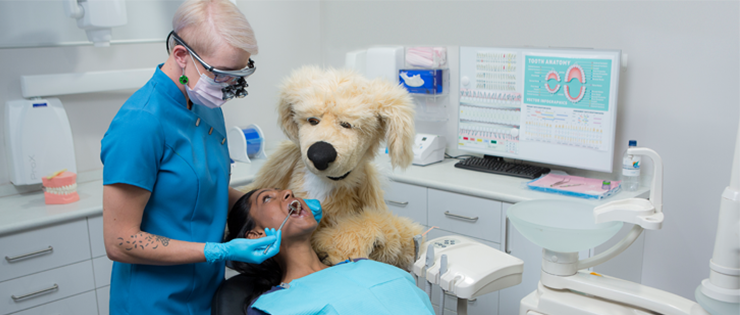
Did you know that your dentist doesn't just check your teeth? That's why the theme for Dental Health Week this year is "Watch Your Mouth" - not just your teeth, but your whole mouth. Teeth, gums, tongue, cheeks, palate, bones, joints... your dentist can make sure everything about the structure and function of your mouth is healthy. Here's just a few of the common things dentists check for that don't directly involve your teeth:
Gums - the foundation for your teeth
It's entirely possible to have perfect, healthy teeth but end up losing them due to poor gum health. A thorough examination of your gums at every checkup will reveal if you're prone to periodontitis or not, and your dentist can help you manage it so you keep your teeth for life.
Ulcers aren't always just ulcers
Some people are more prone to mouth ulcers than others, and some of us are just too keen to bite into that lava-hot cheesy pizza - minor injuries and mouth ulcers are common. If you've noticed a sore spot in your mouth it could be just a boring old apthous ulcer, but how long should you wait to get it checked? Generally if something hasn't healed within 2 weeks, get your dentist to have a look. It may be a sign on an underlying medical problem, or something nasty like the start of oral cancer.
Your mouth gives away your general health
Your dentist can tell if your gums are bleeding because you're not cleaning well enough, or if there might be another reason for it. Gingivitis despite good oral hygiene can be a sign of a more widespread health problem. Certain vitamin and mineral deficiencies can first turn up as swollen and bleeding gums, as can some hormonal imbalances. In rare cases something as serious as leukaemia can cause otherwise unexplained gingivitis. Someone who is generally run down may also show signs in their mouth such as dry, cracked corners of their mouth, or fungal infections which show up in a number of different forms.
Everything you use to chew
Jaw joints, chewing muscles, jaw bones... these are all the territory of your dentist. If you're experiencing problems such as jaw joint pain, joint locking, chewing muscle tenderness or regular headaches, your dentist is a good first port-of-call. Sometimes these things can be managed by your general dentist, or you may be referred to a specialist in temporomandibular joints and orofacial pain. Most people don't realise that these specialists are dentists who have completed extra training, rather than being a medical specialty.